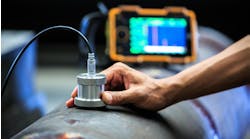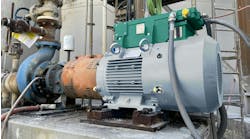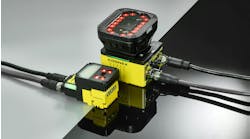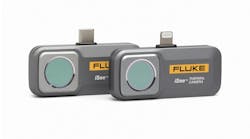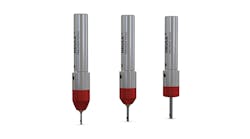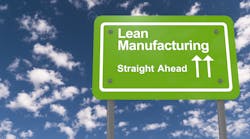The global manufacturing landscape has undergone rapid transformations in recent years. Companies that embrace innovative strategies and adopt industry-leading technologies position themselves ahead of their competition by maximizing efficiency on their plant floors.
1. Enhancing Workflow on the Plant Floor
Every journey towards enhanced efficiency begins with a clear understanding of the starting point. Auditing and mapping the current workflow is essential, as it provides a tangible blueprint of operations, revealing areas of potential improvement.
Hundreds of tools and methods are available for scrutinizing plant floor workflows. From advanced sensors to software solutions, these innovations offer real-time insights that manufacturers identify inefficiencies and optimize processes.
Bottlenecks can significantly hamper production rates and overall efficiency. After realigning processes and addressing these problems, manufacturers can pave the way for smoother, faster, and more profitable operations.
Smooth transitions between production steps are key to maintaining a steady production rhythm. Integrating solutions that bridge operational gaps and facilitate handoffs ensures optimal use of time and resources.
2. Implementing Lean Principles in Manufacturing
Lean manufacturing principles revolve around the elimination of waste in all forms from the production process. With its roots in the Toyota Production System, its core principles emphasize value creation, waste minimization, and continuous improvement.
Competitive pressures and the quest for perfection propelled the evolution of lean principles. Companies sought more streamlined operations, leading them to devise strategies that could systematically reduce waste and inefficiencies.
Adopting lean manufacturing comes with a multitude of benefits. Companies experience decreased production costs, enhanced product quality, and faster lead times, leading to satisfied customers and improved bottom lines.
Merely implementing lean principles isn't enough. It's crucial to train staff adequately and nurture an organizational culture where continuous improvement isn't just a goal—it becomes an ingrained habit.
Various tools and technologies, ranging from Kanban boards to specialized software, support lean initiatives. Their adoption facilitates more effective waste elimination and ensures sustained adherence to lean principles.
3. Leveraging Automation and Robotics
Automation refers to the use of technology to perform tasks without human intervention.
Its allure rests in its manifold benefits: it boosts productivity, reduces errors, and often enhances safety. Within the manufacturing realm, its adoption translates to faster production cycles and a marked elevation in product consistency.
Robotics, a subfield of automation, offers diverse solutions tailored to varied industries. From articulated robots for automotive assembly to delta robots in food packaging, the right choice can revolutionize production processes.
Implementing robotics often demands a significant upfront investment. Yet, the rewards are substantial, including rapid ROI through decreased labor costs, increased productivity, and unparalleled precision in tasks.
A well-thought-out strategy is essential for the successful integration of automation and robotics. Begin with a clear assessment of needs, followed by choosing appropriate solutions, and conclude with meticulous testing and iterative refinement.
4. The Power of Data Analytics in Manufacturing
Data analytics involves examining vast sets of data to extract meaningful insights. Within the manufacturing sector, it's rapidly becoming indispensable, offering companies the ability to make informed decisions and predict future trends.
Success stories abound of manufacturers harnessing the might of data analytics. For instance, companies have detected inefficiencies, predicted maintenance needs, and optimized supply chains—all by analyzing data and acting on the insights garnered.
Today’s market boasts a range of sophisticated data analytics tools designed for manufacturing. These tools, equipped with features like real-time monitoring and predictive analytics, are transforming the way companies operate and make decisions.
Data's true value lies not just in its collection but in its interpretation. After selecting the right analytics tool, manufacturers must ensure they understand the insights provided, and then act decisively to optimize operations.
5. Exploring the Latest Manufacturing Products and Solutions
The manufacturing industry is witnessing a renaissance of innovative equipment. From 3D printers in aerospace sectors to precision lasers in electronics manufacturing, these advancements promise to reshape the fabric of production.
The relentless pursuit of perfection and efficiency drives the innovation of new manufacturing equipment. Coupled with advancements in material science and digital technology, these forces propel the creation of groundbreaking machinery.
Amid the excitement of new equipment, due diligence remains critical. Manufacturers must rigorously vet machinery, questioning and verifying claims, to guarantee that their investments yield the intended returns.
The following use cases attest to the advantages of modern manufacturing equipment:
Laser Precision
Laser Precision is a small to medium-sized manufacturer that collaborated with the Interdisciplinary Center for Advanced Manufacturing Systems (ICAMS) at Auburn University. They worked on identifying the key elements of their system that made it successful, generalizing the concepts to make them applicable to a generic SMM, and then building a business case to motivate and help justify digitization at SMMs. The company is a pioneer among small and medium-sized manufacturers (SMMs) in building an information-centric business model capable of handling volatile orders efficiently.
Laser Precision worked closely with an enterprise resource planning (ERP) provider to digitalize almost all aspects of its business processes, from procurement to fulfillment. This digital transformation allowed the company to process multiple streams of highly volatile and time-sensitive customer requirements effectively, enabling agile performance—quick and effective pivots in their operations—and leveraging data to promote efficiency and economies of scale.
Cincinnati Incorporated
Cincinnati Incorporated, one of the oldest machine tool builders in Cincinnati, is known for its fast-paced innovations based on market trends.
The company was part of a leading team that developed the first large, full-scale additive manufacturing machine capable of printing the world's first 3D-printed cars. It introduced the BAAM machine, which operates 200 to 500 times faster than current additive manufacturing machines. This machine can produce parts 10 times larger than existing technology, impacting various industries, including automotive, aerospace, appliance, and robotics.
Conclusion
We've journeyed through a diverse landscape of strategies and technologies, each promising to elevate the efficiency of plant floor operations. From embracing lean principles to diving deep into data analytics, the tools to transform are at every manufacturer's fingertips.
Those who continually expand their knowledge, adapt to customer demands and market shifts, and incorporate the latest innovations are poised to become industry leaders in this dynamic ecosystem.
For over 30 years, Eric Whitley has been a noteworthy leader in the manufacturing space. In addition to the many publications and articles Eric has written on various manufacturing topics, you may know him from his efforts leading the Total Productive Maintenance effort at Autoliv ASP or from his involvement in the Management Certification programs at The Ohio State University, where he served as an adjunct faculty member.
After an extensive career as a reliability and business improvement consultant, Eric joined L2L, where he currently serves as the Director of Smart Manufacturing. His role in this position is to help clients learn and implement L2L’s pragmatic and simple approach to corporate digital transformation.
